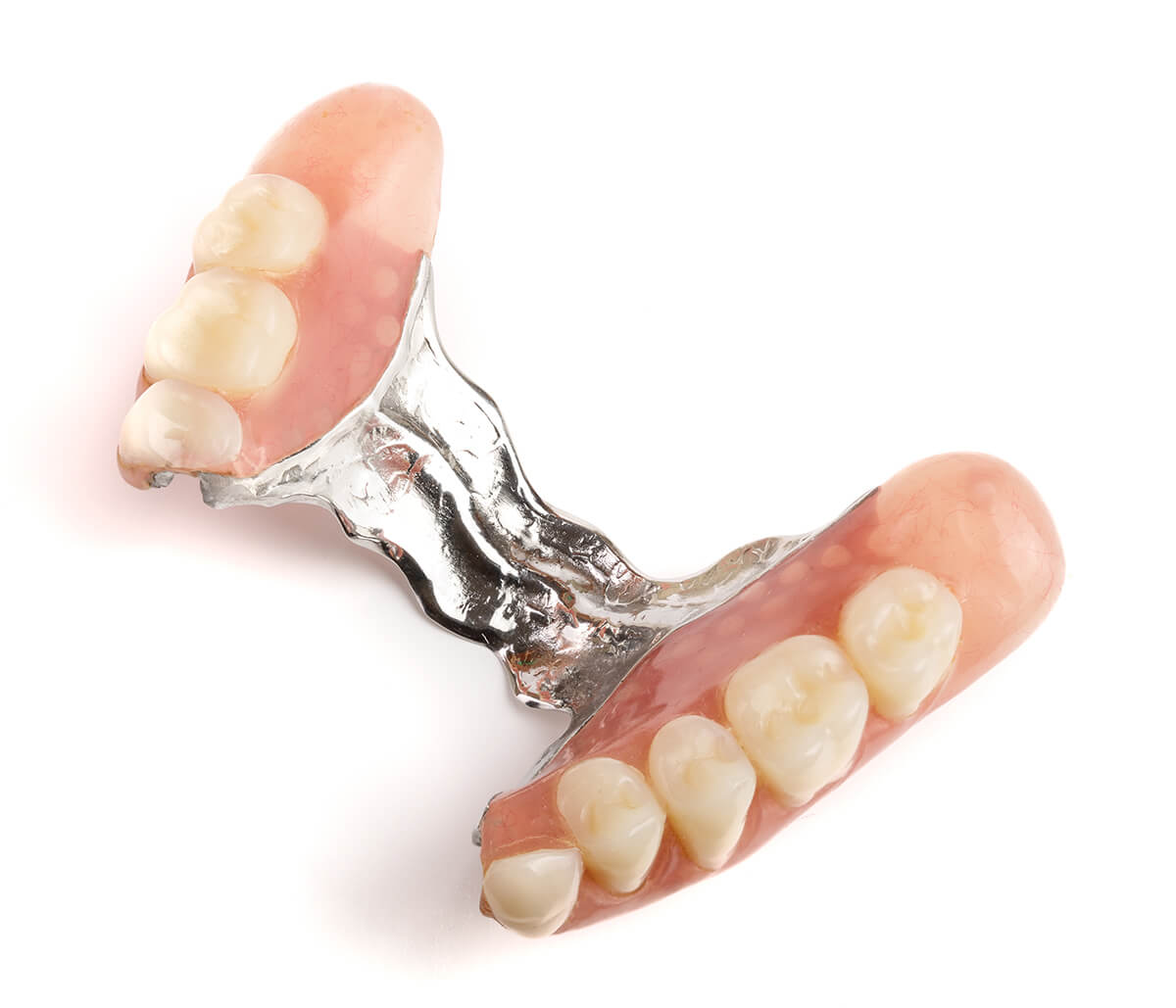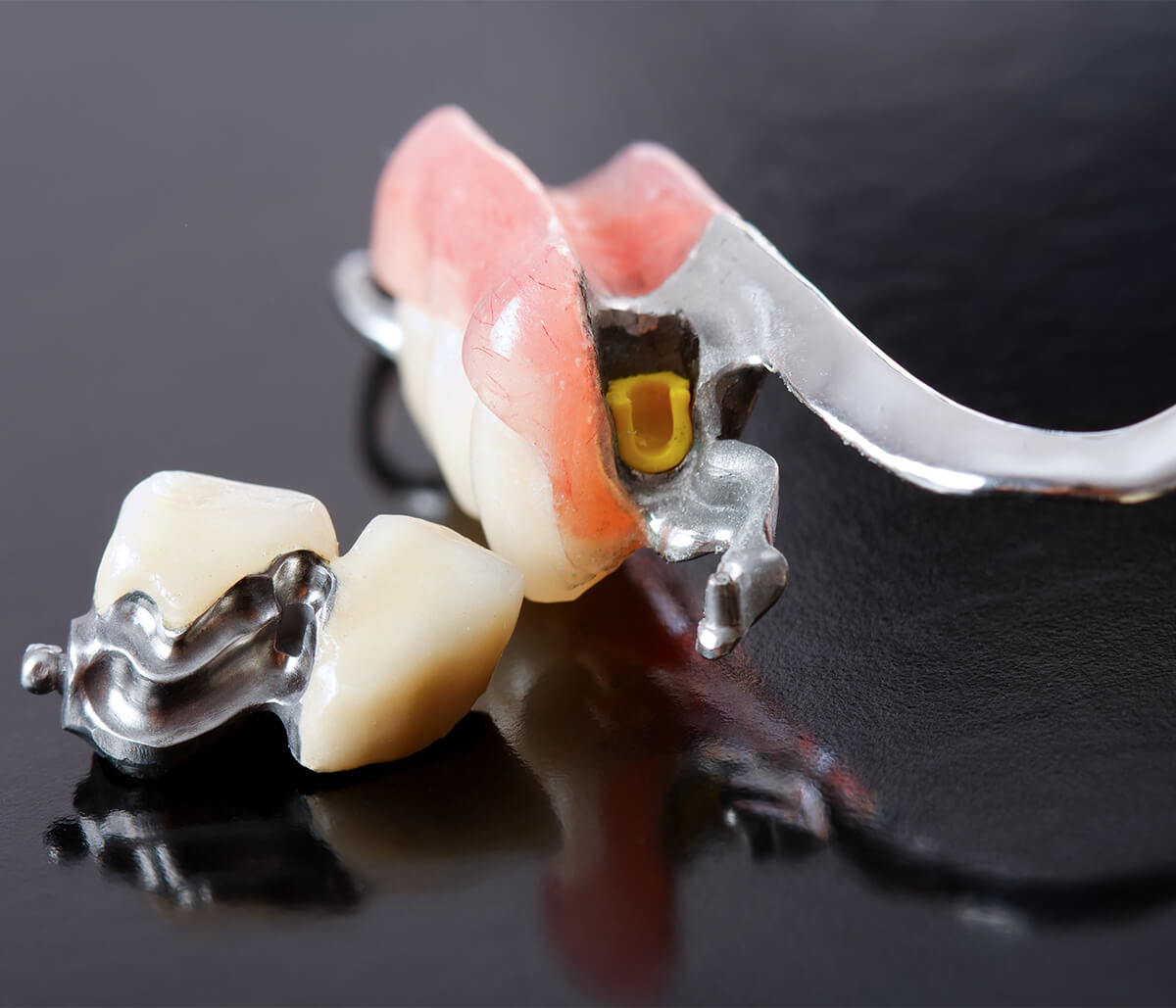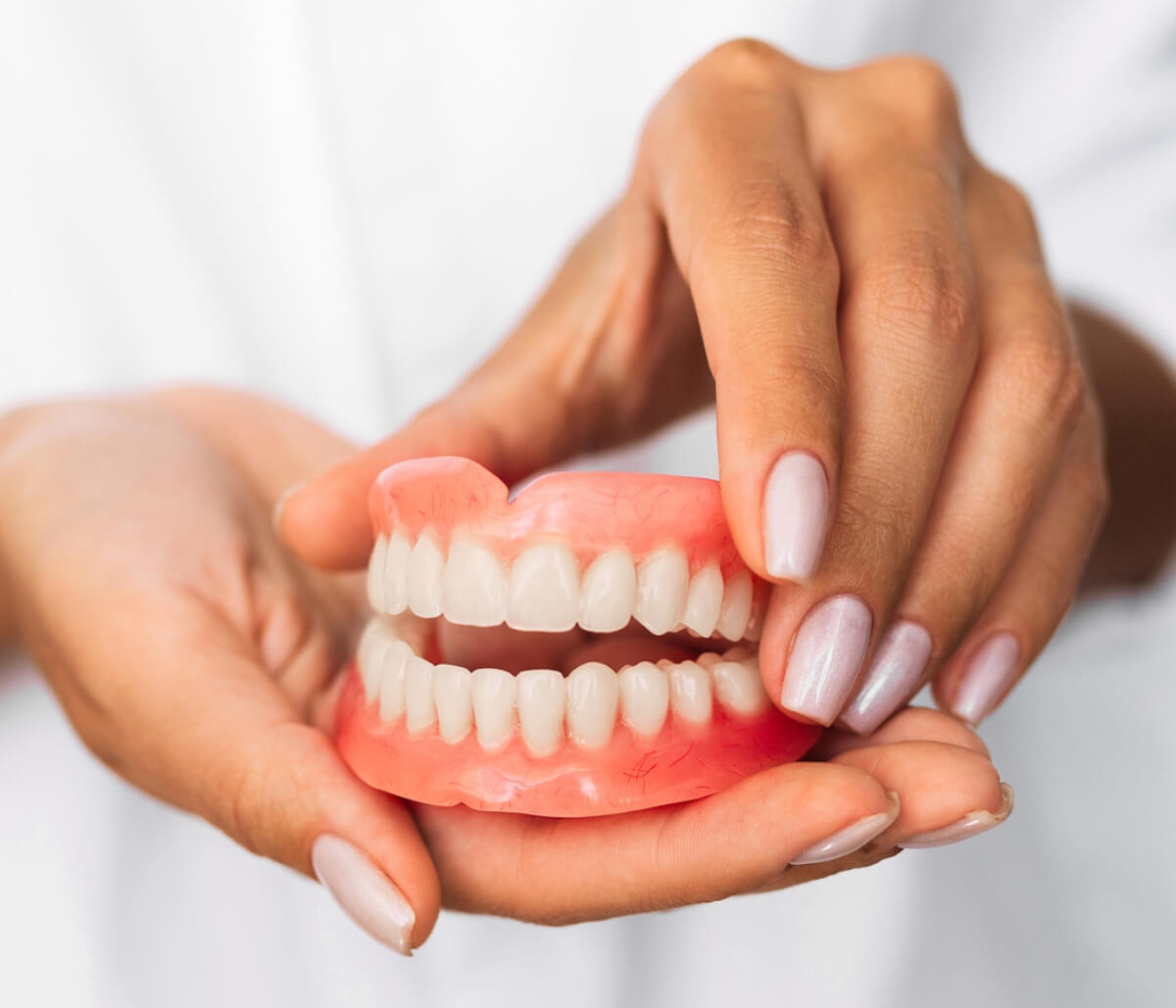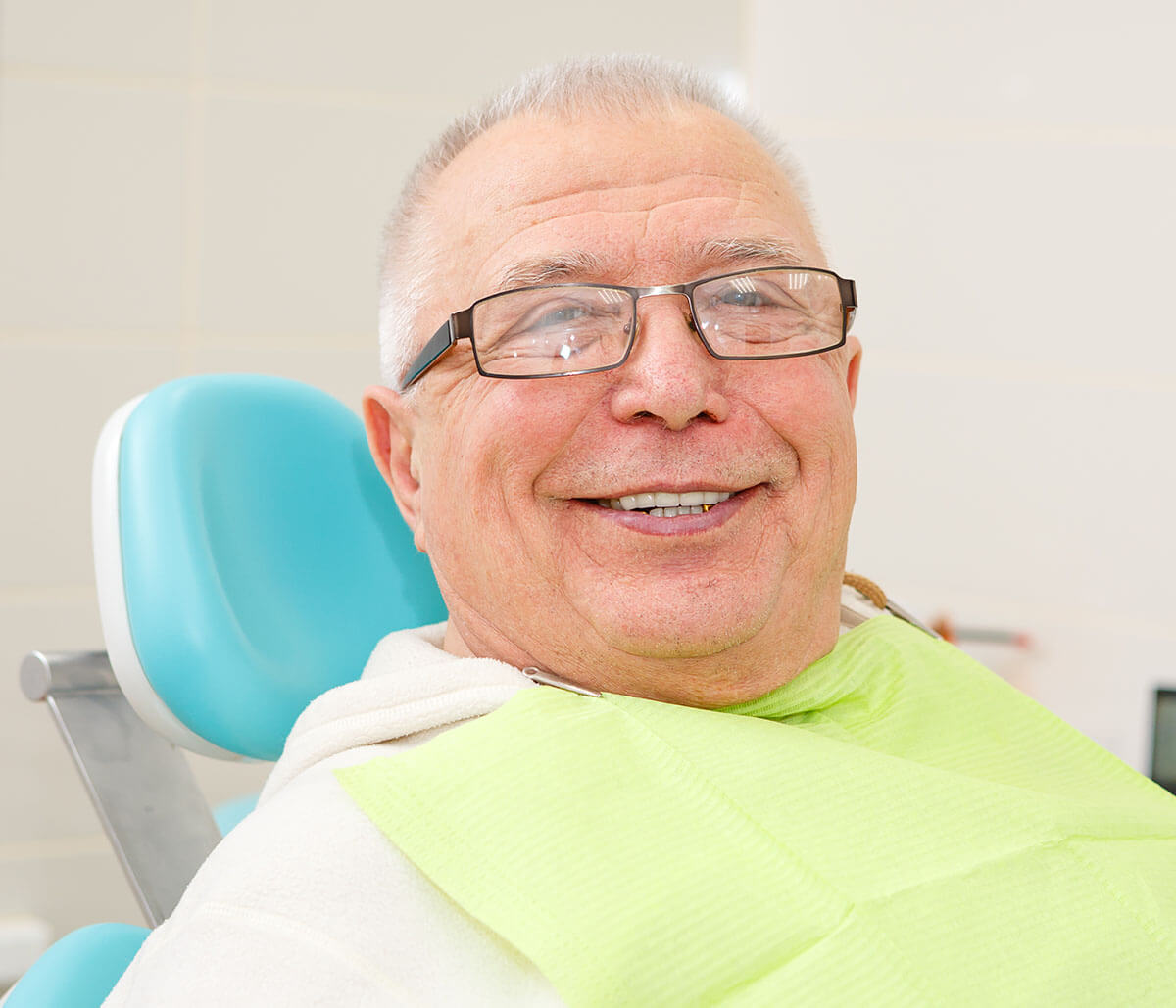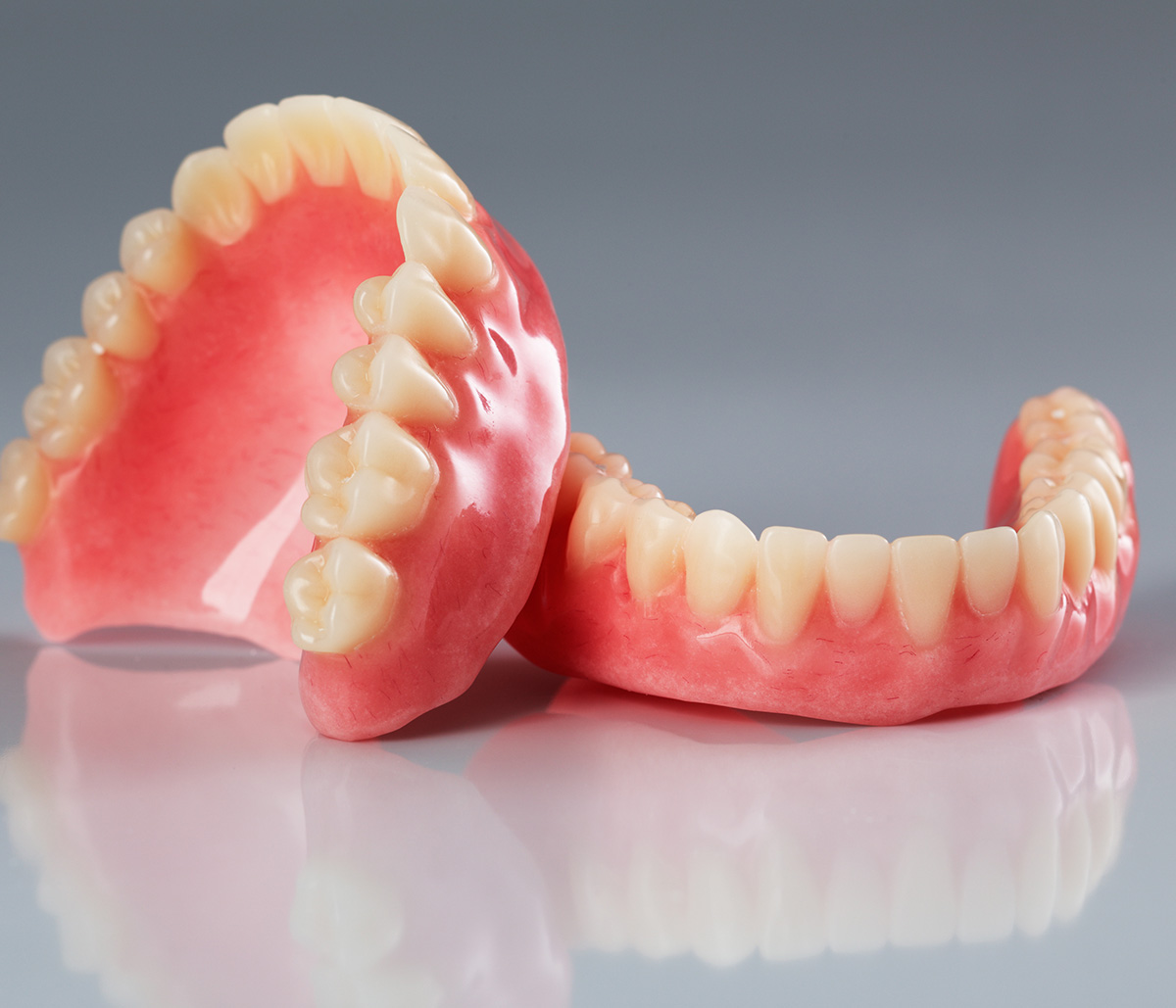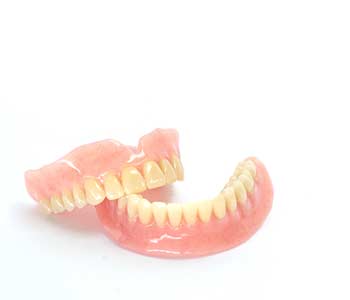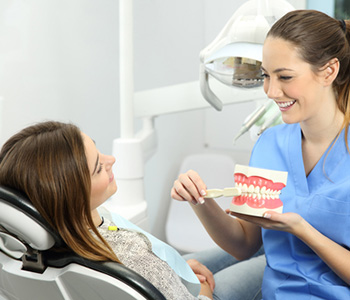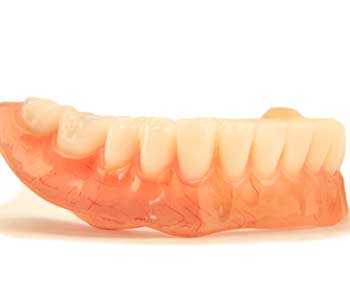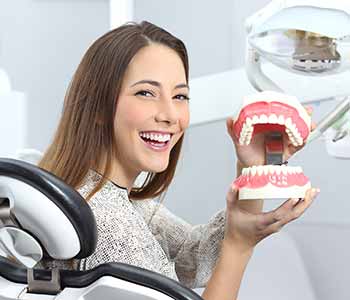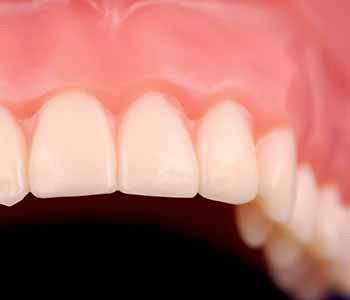Dentures are removable appliances that replace lost, natural teeth. They can be a replacement for an old, ill-fitting denture or an immediate denture that is placed after your teeth are extracted.
When an immediate denture is prepared, a soft liner will be placed in your denture several times over a six to eight-week period while your tissues heal from the extractions. Once the tissues have healed, then a reline will be done to help the denture fit well to the healed gum tissue.
The fit and chewing ability of dentures can be enhanced greatly by the use of dental implants to secure the denture in place. Dental implants are basically titanium screws placed in the jaw bone and after healing, a denture can be fabricated that will snap onto the implants, creating greater retention and chewing force.
Removable partials are used to replace missing teeth and are secured by clasps attached to healthy teeth. The advantages of a partial over a denture are:
- retention of some of your natural teeth
- retention of jaw bone through maintaining natural teeth
- increased chewing power
- better fit since they are anchored to your natural teeth
There are several types of partials:
- temporary partial made of plastic only
- cast metal partial with clasps that attach to natural teeth
- precision partial that attaches to crowns and has no visible clasps
Dr. Bruyere’s advice for best post-op denture recovery
Depending on the type of dentures you have received, either immediate or replacement dentures, your post-op instructions change. For either types of dentures, if you have sore spots, contact your dentist immediately so they can get them adjusted for the best long-term fit.
Hi, I’m Dr. Clint Bruyere, I wanted to talk to you about post op instructions for dentures. If you have immediate dentures, which are done if you have teeth extracted and dentures put in immediately, you’ll be told by the general dentist when to come back in to have a reline put into the dentures that’s soft that will help cushion the gums as they heal. If you are replacing old dentures you need to know they will feel a little bit different, the new ones will, than the old ones. You still need to chew soft foods for a day or two then work in your regular foods. If you feel any sore spots anywhere you need to contact your dentist so they can adjust them for you. Yours in good dental health!
Whether you have a denture or partial, you will still need to have them checked periodically. Dentures need to be checked for a proper fit so that your gum tissue is not damaged. Loose dentures are an indication that a reline is needed. If you are a patient with a partial, you will need regularly scheduled visits to have your teeth cleaned and to be checked for gum disease, cavities, and the fit of the partial.
A complete exam will determine if you are a candidate for a denture or a partial.
The Man Behind the Mask:
Dr. Bruyere graduated from Texas A&M whilst finishing at the Baylor College of Dentistry. He possesses a fellowship with the Academy of General Dentistry and 30 years of experience in dentistry.
Dr. Bruyere enjoys keeping up with the latest information on dental products, treatments and techniques whilst providing the best quality dentistry to his patients.
